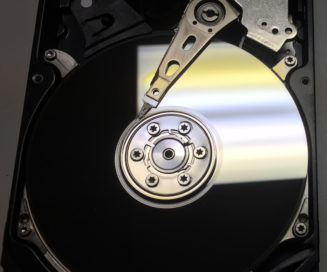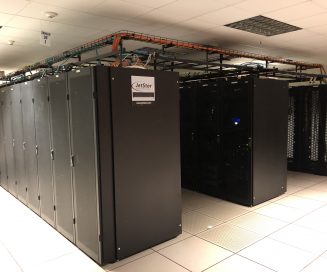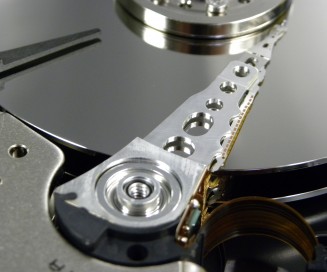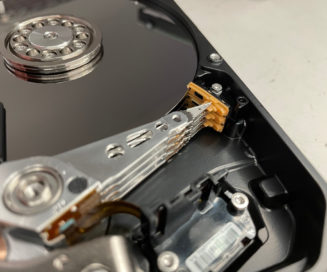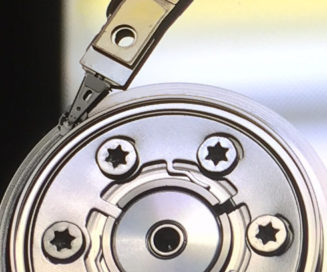Looking for something? Refine your search
- Categories
- Backup
- Cloud
- Computer Forensics
- Computing and CPU Power
- Cryptocurrency
- Damage
- Data Loss Prevention
- Data Recovery Knowledge
- Data Recovery News
- Data Recovery Service
- Data Types
- Database
- Digitization
- Encryption
- Flash Drive
- Hard Disk
- Investing and the Stock Market
- Mac/Apple
- Media
- Mobile Device
- NAS
- Network Security
- Office Documents
- Outreach
- Photos & Images
- RAID
- Ransomware Recovery
- Removable Media
- SAN
- Secure Deletion
- Server
- Services
- SSD
- Storage Industry
- Tape
- Uncategorized
- Video
- Tags
- actuator
- Apple
- backup
- bitcoin
- breach
- clean room
- clone
- computer forensics
- cryptocurrency
- cybercrime
- data recovery software
- data recovery tips
- decision tree
- EEPROM
- encryption
- ethereum
- exploit
- financial records
- fire damage
- flood
- guide
- hard drive data recovery
- hard drive failure
- hard drive manufacturers
- head ramps
- helium
- how to
- hurricane
- iOS
- landing zone
- leak
- Mac
- Mac OS
- machine learning
- macos
- Midwest
- migration
- music data recovery
- NAND
- NFT
- NVRAM
- operating system
- OS X
- parts
- password
- PCB
- Phoenix
- power surge
- RAID
- ransomware
- rebuilt
- SATA
- SaveMyFiles
- SSD
- statistics
- storms
- tornadoes
- TRIM
- video conversion
- virus
- water damage
- wildfires
- windows 10
- windows 10 guide
Microwave-Assisted Magnetic Recording: A Brief Guide
Microwave-assisted magnetic recording (MAMR) is a new technique for increasing the areal density of hard drives, which allows for substantial improvements in data storage capacity. In this article, we’ll provide a basic overview of the technology — and the potential...
June 9, 2022
Defining Key Stakeholders in a Data Migration Project
One of the most important steps in a successful data migration project is the identification of key stakeholders. In information technology (IT) terminology, a key stakeholder is any individual who participates in fulfilling the requirements of the project. This can...
June 6, 2022
Hard Drive Storage Capacities May Increase to 30TB in 2023
Japanese manufacturer Showa Denko has announced the shipment of 3.5-inch hard disk media with a storage capacity of 2.6 terabytes (TB) per platter — potentially allowing for hard drive capacities of 30TB or more by late 2023. The Showa Denko...
June 2, 2022
What Is Shingled Magnetic Recording for Hard Drives?
Shingled magnetic recording (often abbreviated as SMR) is a technique used to increase the areal density of a hard drive, allowing manufacturers to store more data on each square inch of the discs (or platters). The word “shingled” provides a...
May 26, 2022
Heat-Assisted Magnetic Recording: The Future of Hard Drive Technology?
Heat-assisted magnetic recording (HMAR) has been touted as the next great technology for increasing hard drive capacities without reducing other key performance metrics. How does HAMR work — and does it offer clear advantages over current tech? First, a quick...
May 19, 2022
Data Migration to the Cloud: Best Practices
Cloud migration enables enterprises to distribute workloads and improve scalability. For many modern organizations, the cloud is an essential tool for creating robust IT systems. Even so, cloud systems aren’t ideal for every application or every type of workload. Some...
May 16, 2022
What is Hard Drive Areal Density?
Areal density describes the amount of data that can be stored within a given amount of physical space on a hard drive’s platters. Generally speaking, a higher areal density is a good thing. Hard drives with a higher areal density...
May 13, 2022
Veritas Backup Migration: Challenges and Considerations
Veritas Backup Exec™ is a unified data backup and recovery solution for small to midsize businesses. The software enables organizations to protect critical data across multiple systems, and thanks to integrated cloud connectors for all major cloud vendors, Veritas has...
April 15, 2022
How to Protect Your Phone from Ransomware
Most ransomware attacks target desktop computers, servers, and high-value storage networks — but in recent years, a growing number of attacks have targeted smartphones and other mobile devices. Below, we’ll look at a few examples of how mobile ransomware works....
April 8, 2022
The 2TB Flash Drive Scam: Why “High-Capacity” Flash Drives Are Fakes
You’re browsing Amazon or eBay, and you see a great deal: A 2-terabyte (TB) USB thumb drive for about $40. Is it a great bargain — or a dangerous scam? If you’ve read the headline of this article, you know...
March 29, 2022

